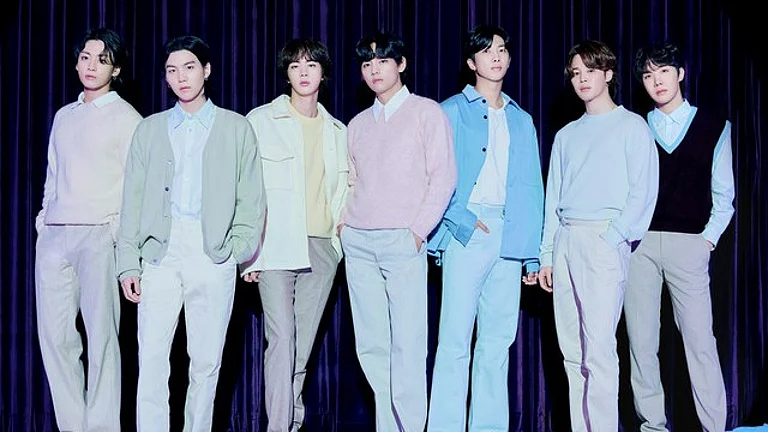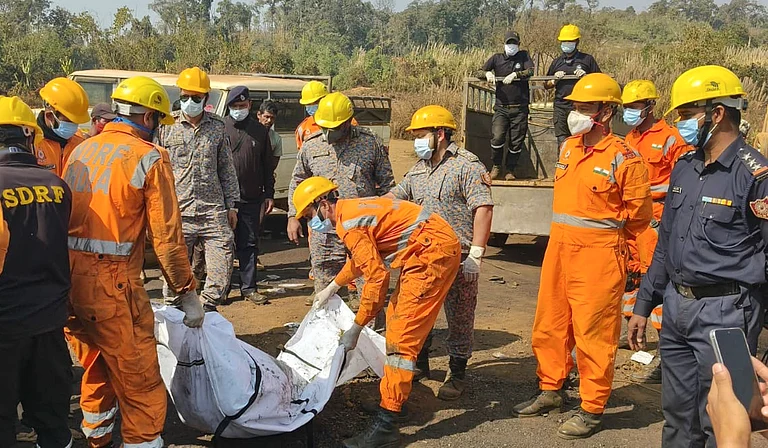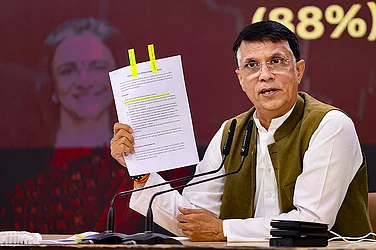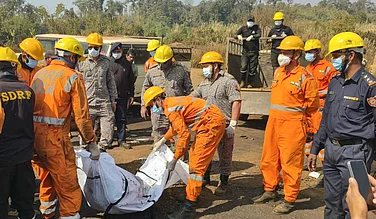THE sparks have begun to fly. In a pointed rebuff on the simmering river waters row, two Deve Gowda aides told Chandrababu Naidu that it was better to quit than crib. Naidu, the United Front steering committee convener, was miffed over Karnataka getting Rs 130 crore Central assistance for the Upper Krishna projecta package which he thinks deprives Andhra of its legitimate share of Krishna waters.
A day later, on November 7, the CPI and CPI(M) took Patna by siege, asserting they wouldnt condone Bihar Chief Minister Laloo Prasad Yadav for his role in the fodder scam. Besides, JD leaders Ram Vilas Paswan and Sharad Yadav have now associated with Laloo-baiters within the party who have come out in the open.
Gowdas own predicament is no different. CPI(M) General Secretary H.K.S. Surjeet has shot off an angry letter to him, arguing that he had gone against the spirit of a coalition driven by a common minimum programme. The CPI(M)s central committee meeting in late October pulled up the government for its adhocism and dangerous economic policies meant to appease the transnational and World Bank-IMF lobby. Gowda also came under attack for ignoring the UF constituents in his unilateral style of functioning, overruling even senior ministers on key issues.
In a nutshell, the internal threat to the 13-party coalition is as big as the occasional Congress warning that it would withdraw support. Except the Asom Gana Parishad and the Congress(T), all other Front constituents are descending into a circle of acrimony. The series of mutual clashes has naturally done no good to the United Fronts claim that it can provide a credible government.
The Left constituents are opposed to bureaucrats getting extensions arbitrarily. Gowda, who had committed himself to this guiding principle, has now bypassed Home Minister Indrajit Gupta and allowed an extended term for Home Secretary K. Padmanabhaiah.
More than specifics, what has upset the Left is Gowdas attitude towards the UF steering committee, supposed to be a powerful policymaking body. Gowda rarely solicits its opinion. The strongest riposte came from the CPI(M) on Gowdas Uttarakhand announcement. "There was no consultation on this within the UF, nor was it in the common minimum programme. This has opened the floodgates for the demand for separate states elsewhere," the central committee said.
The Left has also strong feelings on the move to open the insurance sector to private players, disinvestment in the public sector, and lib-eralisation of foreign direct investment (FDI) in the core sector. Besides Finance Minister P. Chidambaram of the TMC, the CPI(M) has targeted Industries Minister Murasoli Maran of the DMK for "going further ahead than the Rao regime in liberalising the regulations for FDI".
In every crisis, what has so far held the power in Gowdas hands is fear of the BJP. "This will cease to be a cementing force the moment Karnataka and Andhra start fight-ing over Krishna watersa more emotive issue," says a Union minister belonging to the Janata Dal.
As for his personal image, Gowda was lucky to get away with reprimands from coalition partners after he met Shiva Sena leader Bal Thackeray. What has really weakened his authority and put a question mark on his survival is his failure on two crucial points. One, he hasnt yet been able to rise to a detached godfather-like role that a successful coalition leader needshe is seen to be too embedded in Janata Dal and Karnataka politics to evoke confidence and provide an adhesive point among fractious allies. Also, his basic assumption seems to be that the only way to survive is by appeasing the Congress. That way, he only ensures that he exists at the pleasure of the Congress.


























